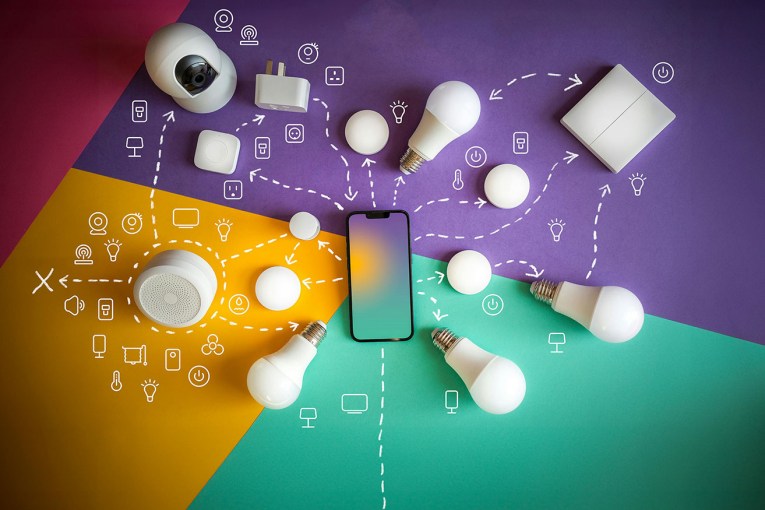Apple and Microsoft join forces for new software announcement

Apple and Microsoft have been locked in a decades-long conflict, both at each other’s neck in the battle to be the top tech company.
But a recent move between the two tech giants signals they are at long last cooperating – and actually might make life easier for consumers.
Apple and Microsoft have joined forces for a brand new software launch, with Microsoft announcing a range of Apple services will soon be available on its PCs as of next year.
Plus, Apple has joined other tech companies in a new alliance, which will see consumers enter a brand new era for ‘smart’ technology.
‘i’ product integration
Microsoft has announced that it will be bringing a number of Apple services over to PC in Windows 11.
Windows users will be able to watch Apple TV and Apple Music apps on native apps on their computers, which will soon be available on the Microsoft Store.
Under the changes, users will no longer have to use web browsers to access their Apple content (which would usually lead to a lower-quality experience).
The Windows 11 Photos app will also be adding iCloud integration, meaning Windows users will be able to access their iCloud Photo library from their PC.
This means consumers that own both Microsoft and Apple products – of which there are many – will hopefully enjoy a far more harmonious tech experience.
Along with the announcement, the Apple Music app was also made available on Xbox consoles – which were created and are owned by Microsoft.
Tweet from @mixen
Grand tech alliance
Apple is continuing to show that it’s keen to become more of a team player, agreeing back in 2019 to join a tech ‘council’ which will set global standards for smart home technology.
Formerly the Zigbee Alliance, the Connectivity Standards Alliance aims to solve the issue of incompatible smart devices, with almost 250 tech companies part of the CSA working group.
The adoption of smart technology in the home has long been dampened by major disconnect between various brands.
Digital doorbells from one brand, for example, would have difficulty connecting with a smartphone from a different brand – resulting in frustration for customers.
Rather than forcing consumers to have smart objects of the same brand, the CSA is establishing standards so that smart products can all converse with the same protocol and digital language.
The set of standards, called Matter 1.0, will also streamline the development of smart products, simplifying the creation of new products for manufacturers.

The CSA hopes the Matter 1.0 standards will improve connectivity between smart devices made by different manufacturers. Photo: Getty
The CSA announced last week that certification for Matter 1.0 is now open, meaning companies can now start preparing their devices for approval.
The four most popular smart home platforms, Amazon Alexa, Google Homes, Apple HomeKit and Samsung SmartThings, are all CSA members, and are set to seek Matter approval.
Once Matter-certified, products from the hundreds of tech companies will earn a Matter logo, which will help consumers in their shopping for smart devices.
Room for improvement
While Apple is making strides with its newfound team spirit, there’s still room for improvement.
iPhone users have long lamented the green bubbles that pop up when texting non-Apple phones.
They’re also unable to send through high-quality videos, receive ‘read’ receipts, or converse with non-Apple users in group chats.
Google has criticised Apple for its unbending attitude, calling on the company to adopt its Rich Communication Services (RCS), which has become somewhat of an industry standard, aside from Apple devices.
Google senior vice-president Hiroshi Lockheimer called out Apple in 2021, inviting Apple to join forces in using RCS.
“Group chats don’t need to break this way. There exists a Really Clear Solution,” Mr Lockheimer said, a nod to the RCS technology.
“Here’s an open invitation to the folks who can make this right: we are here to help,” he said, alongside green and blue emojis.
A year later, Google-owned smartphone company Android launched a dedicated marketing campaign called ‘Get the Message’, imploring Apple to change its ways.
The tech company even included a link to a Macworld article which called iMessage a “failure”.
Tweet from @Android
But Apple CEO Tim Cook was not amused by the stunt.
“I don’t hear our users asking [for a change]. We put a lot of energy in on [iMessage],” he said at an event in September.
Mr Cook had a blunt response when asked by a journalist about the poor quality of images when shared by non-iPhone users, the journalist referencing conversations with his mother.
“Buy your mum an iPhone,” Mr Cook retorted.








